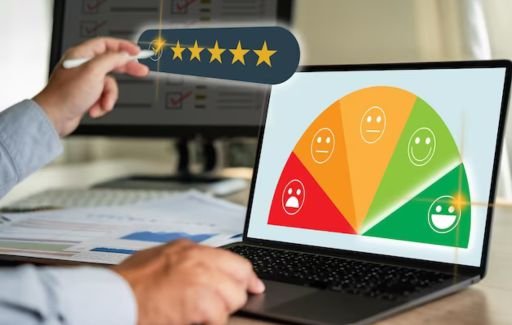


In today's digital landscape, your website's rating and authority are more important than ever. With over 3.5 billion searches per day on Google alone, achieving high rankings and visibility in search engines can make or break your online presence.
However, checking and improving your website's rating is often an overlooked aspect of digital marketing. Many businesses fail to regularly monitor the core metrics that determine their site's authority and trust signals.
This inevitably leads to lost organic traffic, lower conversions, and reduced revenue over the long term. That's why every website owner needs to make rating checks and optimization a priority.
This comprehensive guide will explore what website rating is, why it matters so much for your bottom line, how to accurately check your site's current rating across multiple factors, the key elements that influence your overall score, and actionable tips to start improving your website's authority to unlock more search traffic and sales.
By following the website rating best practices outlined in this guide, you can gain a data-driven understanding of your site's current standing, pinpoint problem areas hindering performance, and implement proven solutions to achieve higher rankings, visibility, and revenues in 2024 and beyond.
A website's rating refers to scores and metrics that evaluate its overall quality, performance, and authority in search engine results pages (SERPs). Key rating factors include:
This measures where your site ranks for relevant keywords. Higher rankings equal more traffic. The top 3 results get an average of 58% of clicks.
Domain authority (DA) rates your overall SEO strength on a 100-point scale. Higher DA scores signal trust and authority.
Page authority (PA) rates individual page quality from 1-100. Aim for PA above 30.
Search engines check site security and trust indicators like HTTPS, site speed, mobile-friendliness, etc.
High-quality, optimized content earns relevance and rankings. Low-value content does the opposite.
Boosting your website's rating improves visibility and authority in SERPs. This translates into higher click-through rates, lower cost-per-click, more conversions, and greater revenue.
You can evaluate your website's overall rating and pinpoint strengths and weaknesses using a few key tools:

Now that you know how to check ratings, let's discuss the crucial elements that impact your overall scores:
Here are proven tips to boost your website's overall rating, authority, and organic search performance:
By following these tips and making website ratings a priority, you can establish greater authority and trust to boost your organic search presence and revenues.
A: To check your ranking in Google, search for your target keywords in incognito mode and see what position your site comes up in the search engine results page. You can also use rank-checking tools like SEMrush, Ahrefs, and Moz to see keyword rankings.
A: A good page authority score is considered to be 30 and above. Pages with authority above 30 tend to rank well and have sufficient trust signals. However, page authority depends on your niche - some industries have higher authority benchmarks.
A: Common reasons for low Google rankings include poor page speed, lack of mobile optimization, thin content, lack of backlinks, poor technical SEO, weak domain authority, and not enough authority links to your site. Improving these factors will help boost your Google ranking.
A: You can check if your website is mobile-friendly using Google Search Console's mobile usability report. Other tools like Google's Mobile-Friendly Test, Think With Google's Test My Site, and Pingdom Website Speed Test will also assess the mobile experience.
A: Most website grader tools rate trust on a scale of 1-100. A score above 60 indicates good trust and authority signals, 80+ is excellent trust ranking, while anything below 40 means the website has many issues damaging trust and authority.
Checking and optimizing your website's rating should be an integral part of your digital marketing strategy.
By regularly monitoring key metrics like domain authority, page authority, search rankings, page speed, trust factors, and content engagement, you can diagnose problems early and take steps to improve your site's overall authority.
Focus your optimization efforts on creating high-quality content, improving technical SEO elements, building backlinks, and driving user engagement. With consistent rating checks and improvements over time, you can enjoy higher organic reach, reduced cost-per-click, increased conversions, and greater revenues from search and beyond.
Use this guide's tips and tools to start evaluating and levelling up your website's rating today.